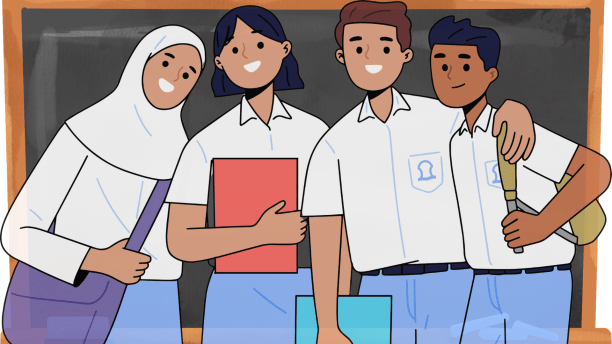When students become guinea pigs

Let us begin with a generic scenario to explain the quandary of a 10th grader in Bangladesh in 2025. Due to take the SSC examinations in a year, this student will have to choose between science, humanities and commerce streams.
The same student in 2024 had a generalised education without having to choose from any stream and instead of year-end finals, was graded on the basis of continuous assessments under the 2022 curriculum. A year earlier, in 8th grade, the same student was made to follow the long-standing 2012 curriculum, which used traditional exams and mandated stream selection.
This rapid succession of reforms reveals a core problem: education has become an elaborate experiment, lacking long-term vision or adequate preparation. Students are caught in the middle, forced to adapt to frequent, poorly implemented changes.
The National Curriculum 2022 aimed to modernise education with a unified system for grades 1 through 10, moving away from rigid streams and traditional exams. The government claimed this shift would help transition students from rote learning to a more practical, real-world education. It removed traditional year-end exams, replacing them with continuous assessments and a greater emphasis on practical activities.
While the curriculum initially seemed promising, its implementation was flawed. Even months after the start of the academic year in 2024, the assessment system remained unclear. The situation was clear -- teachers were unprepared, parents were confused, and students were left without clear guidance.
This was proven in a survey by the National Curriculum and Textbook Board (NCTB) among 2.53 lakh teachers in January 2024, which found that 37.6 percent of teachers "roughly" understood the assessment system, while the rest struggled with its practical application.
This lack of preparedness led to widespread dissatisfaction. Protests erupted nationwide, with parents, educators, and students demanding changes.
Then in August 2024, after the fall of Sheikh Hasina-led government, the interim government discarded that curriculum and reinstated the 2012 curriculum.
While this decision restored some familiarity, it created additional challenges. Current grade 10 students, who had studied under the 2022 framework in grade 9, were left to compress two years of stream-based study into one year, further straining the academic environment.
Despite these adjustments, the cycle of instability persists. As 2025 begins, plans are already underway for another reform in 2026.
According to Bangla daily Prothom Alo, the proposed system will once again eliminate streams for grades 9-10, replacing them with a mix of mandatory and optional subjects. While this approach promises flexibility, it raises questions about the readiness of schools and teachers to handle yet another overhaul.
In a system already destabilised by frequent changes, can such reforms be implemented without further compromising education quality?
More importantly, are these reforms truly in the best interests of students, or are they turning education into a series of poorly executed experiments?
The consequences of this instability are far-reaching. Students face not only disrupted academics but also a loss of confidence in a system that seems directionless. Teachers, too, are left struggling to adapt, often without adequate training or resources. The frequent changes also place parents in a state of confusion, unsure of how to support their children in an ever-shifting landscape.
In the backdrop of the sacrifice and contribution of students to establishing our democratic rights, this kind of experimentation and apathy towards their education. They deserve a stable, supportive education system that helps them blossom and realise their potential in life.
Policymakers would do well to address the fundamental flaws in their approach to education reform. Instead of treating students as test subjects for policy experiments, reforms should be evidence-based and implemented with care.




 For all latest news, follow The Daily Star's Google News channel.
For all latest news, follow The Daily Star's Google News channel.
Comments